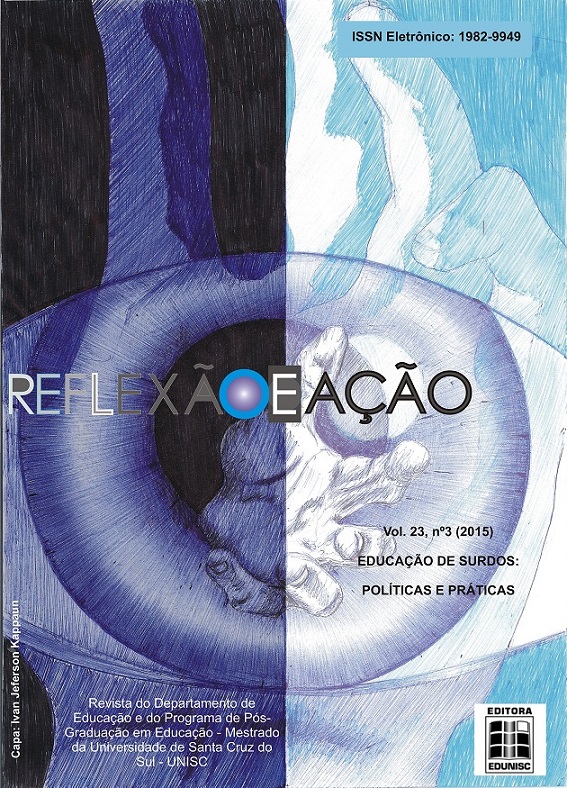LIBRAS AND COCHLEAR IMPLANT: CONTRADICTION OR COMPLEMENTARITY?
DOI:
https://doi.org/10.17058/rea.v23i3.6109Keywords:
Cochlear Implant, Bilingual Education For The Deaf, Psychoanalysis, Subjectivity, Discourse AnalysisAbstract
This paper analyses the answers for the interviews carried out with deaf children´s parents about their decision for the rehabilitation and education of their kids, decision which is marked by the simultaneous choice of submitting them to cochlear implant surgery and the exposition to the Brazilian Sign Language. The research’s methodology adopted the historical criticism and the psychoanalysis - hermeneutic analysis for the eight interviews carried out with parents of the children who are regularly enrolled in a bilingual school for deaf children. We tried to analyze the reasons that boosted this specific decision making by parents. The authors that support our research are Freud, and others from psychoanalysis, who helped us understand the subjective motivation boosting parents´ desires and decision making actions; Also, Michel Foucault whose studies helped us comprehend a new human subject appearance and the truth discourse. Our conclusions are that when parents choose this double and simultaneous approach, which families consider as complementary, families are acting their social and cultural roles as parents. The outcomes show us the emergency of a new deaf subject, the bilingual with a Cochlear Implant, that requires some new educational possibilities.Downloads
Downloads
Published
How to Cite
Issue
Section
License
The submission of originals to this journal implies on the transference, by the author(s), of the printed and digital publishing rights. The author´s rights to the published articles are the author´s, the journal has the rights over the first publication. The author(s) can only use the same results in other publications, indicating clearly that this journal was the original publisher. Since we are an open access journal, the free use of articles is permitted for educational and scientific applications, as long as they inform the source according with the CC-BY license from Creative Commons.


